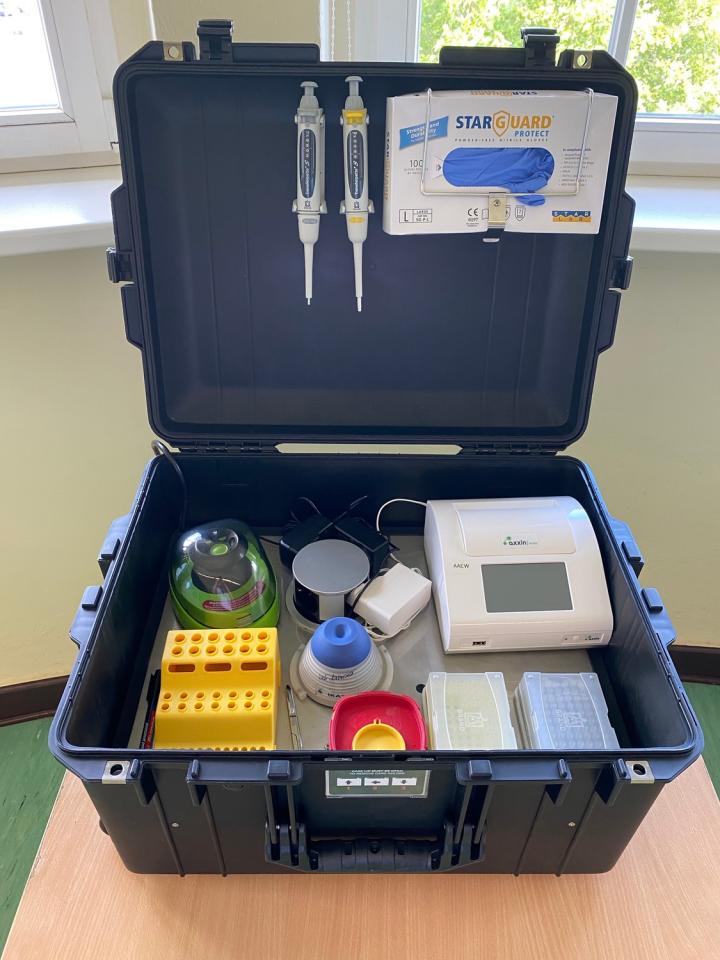Mobile laboratory for rapid detection of SARS-CoV-2 for Africa

Credit: Dr Ahmed Abd El Wahed
The PCR test is the most accurate tool to identify SARS-CoV-2. However, valid results are often available only after days. Moreover, the laboratory must be well equipped, have trained personnel and sufficient financial resources. All of this is usually a problem in Africa. A portable suitcase could help. In cooperation with several African universities, scientists at Leipzig University have found that this mini-laboratory provides test results that are almost as good as a PCR test – and almost in real time. The researchers have now published their findings in the journal “Analytical Chemistry“.
The compact case could provide rapid coronavirus test results in regions of Africa where testing facilities and medical infrastructure fall far short of European standards. The case is a small, mobile laboratory equipped with a diagnostic device, solar power supply, various reagents, some reference RNA extracts and rubber gloves. “With this tool, a so-called RPA test can be done directly on site, even in the most remote areas. It takes only 15 minutes to get a result,” said virologist Dr Ahmed Abd El Wahed from the Institute of Animal Hygiene and Veterinary Public Health, who is leading the study at Leipzig University.
Infected people can thus be identified and isolated more quickly. This is an important and life-saving measure in countries that may have to wait a long time for vaccines, and will contribute to bringing the COVID-19 pandemic under control. In the first study at Leipzig University, genome analysis (RPA method, recombinase polymerase amplification) was used to detect an infection with SARS-CoV-2 almost in real time, with an accuracy of 94 per cent. Dr Abd El Wahed explained the mobile lab’s simplicity: “A saliva sample or a nasal swab is sufficient for the test and all reagents can be used at room temperature.”
Suitcase lab already a success against Ebola
The method that will now be used to conduct coronavirus testing has already been successfully evaluated for several other infectious diseases, for example in Guinea in 2015, during the Ebola outbreak in West Africa. For COVID-19 diagnosis, the mobile suitcase lab has already been implemented in Egypt, Ghana, and Senegal, as well as in five other African countries: the Democratic Republic of the Congo, Madagascar, Nigeria, Sudan, and Uganda. Results will now be evaluated in further studies.
Specifically, the exact performance of the developed SARS-CoV-2 RPA assays will be determined and compared to PCR assays. If the results are comparable, as the preliminary data seem to suggest, the suitcase laboratory could soon be increasingly used in the clinical field to determine SARS-CoV-2.
###
The study is receiving 500,000 euros in funding from the European and Developing Countries Clinical Trials Partnership (EDCTP) and will run until September 2021. Funded by the European Union, the EDCTP is a public partnership between countries in Europe and sub-Saharan Africa. It aims to accelerate the clinical development of new or improved drugs for the identification, treatment and prevention of poverty-related infectious diseases.
Media Contact
Dr Ahmed Abd El Wahed
[email protected]
Original Source
https:/
Related Journal Article
http://dx.




